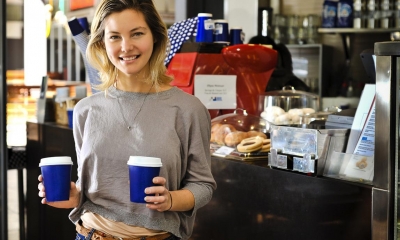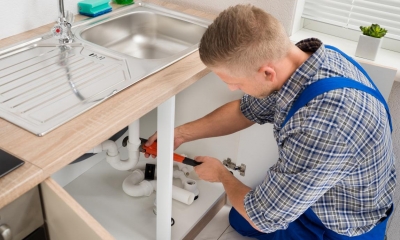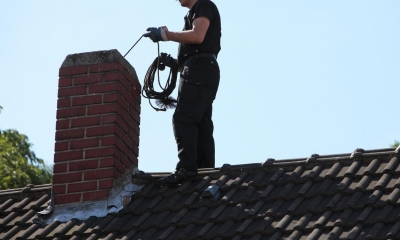
The catering sector is subject to quite a significant amount of regulation and you should consider obtaining specialist help to make sure you comply with all the legal requirements. The following is an outline of some of the areas that are likely to be relevant to you if you want to open your own cafe. This list is not intended to be exhaustive.
What licences does a cafe need?
Because your cafe will store, sell, and prepare food, you'll need to register as a food business with your local environmental health department. They will inspect your premises and help you to comply with the requirements of food hygiene and safety regulations. Contact your local authority early on in your planning so that you register in good time. There is no charge for registering.
Depending on the type of cafe or restaurant you plan to run and your location you may also need the following:
- in England and Wales - a premises licence from your local licensing authority covering the sale of alcohol and, if applicable, the supply of hot food between the hours of 11.00pm and 5.00am ('late night refreshment'). You can read more about alcohol licensing in England and Wales on the GOV.UK website
- in England and Wales - a personal licence from your local licensing authority authorising a designated responsible person (for example yourself, or a manager) to oversee the above activities if applicable
- in Northern Ireland - an alcohol licence from the county court. You can read more about alcohol licensing in Northern Ireland on the NI Direct website
- in Scotland - a premises alcohol licence from the local Licensing Board. You can read more about alcohol licensing in Scotland on the Scottish Government website
- in Scotland - a personal licence from the local Licensing Board. All licensed premises in Scotland require alcohol sales to be made by - or under the authorisation of - a personal licence holder
- a music licence from PPL PRS for the use of copyright music (for example as background music). An MPLC licence if you plan to screen films or TV shows
- a 'first sale' fish buyer's registration covering the purchase of fresh fish direct from fishermen. Registration is available from the Marine Management Organisation (MMO) or the equivalent devolved regional organisation. You can get more information on the GOV.UK website
If you plan to have tables outside on the pavement you should get permission from your local authority. You'll probably need a pavement cafe licence or similar permit.
Choosing premises for your cafe - planning usage classes
When choosing premises for your cafe, note that you will need to find premises with the appropriate planning usage classification. It may be possible to change the classification of a premises, but this will require planning consent. It is easier to change to some classifications than to others - for example, it can be difficult to change from a cafe or restaurant serving food for consumption on the premises to a hot food takeaway.
Planning usage classes covering cafe and restaurant activities are as follows:
- A3 - restaurants and cafes (food and drink for consumption on the premises)
- A4 - drinking establishments (pubs and wine bars, but not night clubs)
- A5 - hot food takeaways (hot food for consumption off the premises)
Ensuring food safety in your cafe
All businesses in the food sector must comply with strict food safety legislation. Before you open your cafe, you must register your business with the local authority environmental health department. Your local environmental health officer will be able to give you advice and guidance as to what you should install in your premises to make sure your operating areas are hygienic and how to comply with the requirements of food hygiene and safety regulations. You can find out more about all aspects of food safety legislation on the Food Standards Agency and Food Standards Scotland websites.
Alcohol licensing legislation
The sale of alcohol is regulated by:
- the Licensing Act in England and Wales
- the Licensing (Northern Ireland) Order
- the Licensing (Scotland) Act
If you intend to sell alcohol you'll need to obtain the appropriate licences and comply with the terms of the legislation, as well as with standard and any other licensing conditions. You can find out more information about alcohol licensing throughout the UK from:
- the GOV.UK website (England and Wales)
- NI Direct (Northern Ireland)
- the Scottish Government website
Spirits duty paid tax stamps
All bottles of spirits and made wine above 30% alcohol by volume must have a tax stamp on them to prove that UK duty has been paid on them. It is illegal to hold in stock or to sell any bottle that is not marked in this way.
Responsibility for litter from your cafe
All businesses, including cafes, are responsible for clearing up any litter around their site that has originated from their retail activities. For example, this would include take-away food or drink packaging, ice cream wrappers and so on.
Workplace smoking ban
Smoking is not permitted in public places like cafes and restaurants. You must display appropriate 'No Smoking' signs. The legislation varies slightly in different parts of the UK so contact your local authority for details of how the ban affects you. You can also find out more on the HSE website and the Smoke-free England website.
Price marking in cafes
Special regulations apply to businesses in the catering industry and cover matters like giving clear pricing information and indicating what prices do and don't include. Your local Trading Standards Department will be able to advise you on how the regulations affect your business.
Asylum and immigration legislation
Controls on illegal immigration into the UK mean that it is a criminal offence for any business knowingly to employ a person who is not entitled to live or work in the UK. Any employers who do so face an unlimited fine and/or imprisonment. Employers must check employees' documents to ensure they're valid. More information on preventing illegal working is available on the GOV.UK website.
Consumer protection
Consumer protection and fair trading regulations require you to be fair and honest in your dealings with customers. For example, it is illegal to claim on your menu that the lamb in one of your dishes is 'locally sourced' when in fact it came from New Zealand. Your local authority trading standards department will be able to give you advice on any specific queries you have about consumer protection legislation. There is also information for businesses available on the GOV.UK and Trading Standards Business Companion websites.
Environmental legislation
The Environmental Protection Act and regulations made under it apply to businesses like cafes and restaurants and cover matters that include:
- nuisance like noise, smoke, smells and accumulated rubbish
- proper disposal of controlled business waste
- preventing the contamination of drains and groundwater from potentially harmful substances like old frying oil
For more information, contact the Environment Agency in England, Natural Resources Wales, the Department of Agriculture, Environment and Rural Affairs (DAERA) in Northern Ireland, or the Scottish Environment Protection Agency (SEPA) in Scotland.
Health & Safety, fire
You must comply with workplace health and safety and fire safety legislation.
Employment legislation
Anyone employing staff must comply with employment legislation. Important areas of legislation include recruitment, employment contracts, pay, working hours, holidays, employment policies, sickness, maternity, paternity, discrimination, discipline, grievances, dismissals, redundancies and employment tribunals.
Insurance for your cafe
Contact an insurer or insurance broker and explain exactly how your business will operate - they will then explain what insurance cover you must have by law, and other cover you should consider. This might include:
- employer's liability
- public and product liability, including cover for food poisoning
- premises, premises contents and stock
- refrigerator/freezer breakdown
- cash
- business interruption
- loss of licence
- visitors' belongings
- failure of gas, water or electricity
- motor insurance
Specially tailored restaurant packages are available providing comprehensive cover.
Bear in mind that some trade associations offer specialist business insurance packages for restaurants at discounted prices for their members. For example, UKHospitality offers members specialist business insurance services through its partner insurers, while the Nationwide Caterers Association (NCASS) offers insurance services to business like cafes and take-aways. Visit their websites to find out more.
Next steps
Read our related content.



